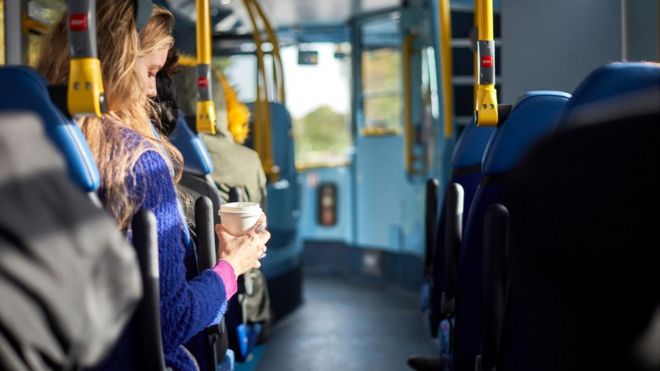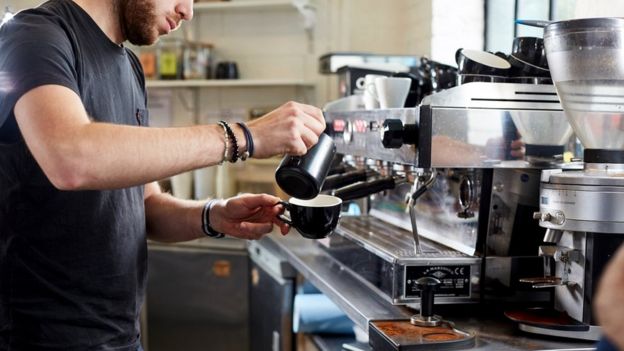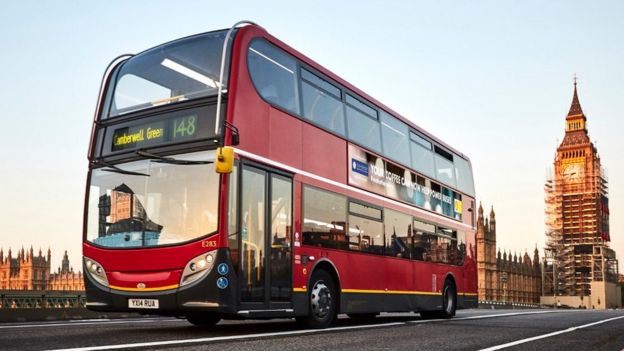
It is the first time a coffee-derived biofuel will be used on London's public transport system
Waste coffee grounds will be used to help power some of London's buses from Monday, it has been revealed.
A biofuel created by blending oil extracted from coffee waste with diesel is to be added to the public transport fuel supply.
Technology firm bio-bean says it has produced enough coffee oil to power one bus for a year.
Transport for London (TfL) has increasingly turned to using biofuels to reduce transport emissions
Biofuel made using waste products such as cooking oil and tallow from meat processing is already used in many of the capital's 9,500 buses. However, this is thought to be the first time a coffee-derived biofuel has been added to London's public transport system.

About 55 million cups of coffee are drunk in the UK per day, the British Coffee Association says
Londoners create 200,000 tons of coffee waste a year, according to bio-bean. The company takes the used grounds from coffee shops and instant coffee factories, and extracts oil from it in its factory.
This is then processed into a blended B20 biofuel. Buses can be powered using the fuel without the need for modification.

More than two billion passenger trips are made on buses each year in London
Will buses be run on coffee in future?
The firm believes it would take just over 2.55 million cups of coffee to create the enough biofuel to run a London bus for a year once the oil has been blended with diesel. Six-thousand litres of coffee oil have been produced so far."It's a great example of what can be done when we start to reimagine waste as an untapped resource," bio-bean founder Arthur Kay said.
A report from the University of Manchester suggests that renewed emphasis be placed on developing waste.... "In the UK we produce 16 million tons every year, enough to double our current biofuel supplies. A third of that waste is called green waste, a quarter of it is agricultural straw".
The authors believe there is great scope for expansion in the use of unavoidable waste, such as used cooking oil, forest and sawmill residues, the dregs from whisky manufacture, even oils from sewage are possible bio-fuel.
In the future it is possible that we will be able to convert all waste products, including plastic into bio-fuels. Cheap transportation fuel, no carbon emissions and no garbage dumps. It's a win-win.
What a beautiful world.
No comments:
Post a Comment
Through this ever open gate
None come too early
None too late
Thanks for dropping in ... the PICs